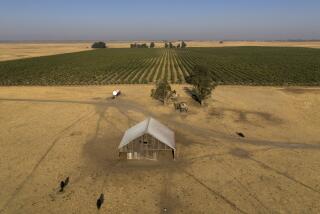Carson City Council may be set to approve NFL stadium, sight unseen
Carsonâs City Council could decide Tuesday night to approve an NFL stadium for the San Diego Chargers and Oakland Raiders. It would be a decision based on faith, because many of the of the details are still unknown.
Specifics of the $1.7-billion proposal, first unveiled in February, have been scarce, at least publicly.
The 26-page initiative petition proposing the stadium says little about how it would be paid for, other than a promise that city tax dollars wonât be used. Leases need to be worked out. Personal seat licenses â which developers say could fund nearly half the project â must be sold. And thereâs no mention of the three-way land swap, creation of a new city agency or 10-figure investment led by Goldman Sachs that are all key to the deal.
A city-funded report released over the weekend mentioned other unresolved issues, among them:
⢠While a two-team stadium would help Carsonâs budget, just one tenant may not generate enough tax revenue to cover city costs for decades.
⢠The difference between making and losing money hinges on $1.4 million a year in federal housing funds the city could lose if room canât be found elsewhere for more than 1,500 housing units that were originally planned for the stadium site.
⢠While developers have agreed to pay for street work estimated at $37 million, the stadium would need 16,000 off-site parking spaces, hindering development of nearby land and the subsequent property tax revenue.
Much of this will be decided in the coming months between city officials and representatives of the Raiders and Chargers, said Albert Robles, a Carson City Council member who becomes mayor on Tuesday.
âThereâs still a lot more that needs to go on here, a lot,â he said. âThis is a long process.â
Time is a key factor in trying to bring the NFL back to Los Angeles.
Carson and the Chargers want to keep pace with St. Louis Rams owner Stan Kroenke, whose proposed $1.86-billion stadium in Inglewood won local approvals in February.
NFL owners will get an update on both local projects as well as St. Louis at a meeting in New York on Wednesday. A quick vote from the Carson City Council would give that project a boost going in.
Council members said they werenât sure if they will vote on the stadium plan now or schedule a public vote this summer.
âI think itâs a wonderful idea, but at no cost to residents,â said council member Lula Davis-Holmes. âWe cannot be exposed to any major losses.â
The Chargers and Raiders are proposing a financing plan similar to the San Francisco 49ersâ stadium in Santa Clara, which opened last year. It is publicly owned and paid for through team and league funds, personal seat licenses and proceeds from non-football events. Goldman Sachs also put together that deal and in Carson pledged that the team will cover all construction costs.
Things such as rent, gameday revenues and how much debt the stadium authority might carry wonât be worked out until after the initiative is approved and relocation plans are submitted to the NFL.
âThe parties are all working together in good faith on the next steps,â said Mark Fabiani, the Chargersâ point man on the project.
The sides have been talking since at least December, according to agendas of closed-door sessions of a Carson city agency, about a three-way deal for the former landfill site where the stadium would go.
Itâs currently owned by investment firm Starwood Capital, which in 2013 bought a developer who wanted to put a shopping center there. The project stalled, and Starwood could owe the city as much as $16 million by 2016 if no development is built.
The current plan is for Starwood to sell the land to a subsidiary of the Chargers, which would then transfer it to the city-run stadium authority. The city, according to legislation to be considered Tuesday, would collect $3 million in the sale but erase the rest of Starwoodâs obligation. The city would then own the land, which it could sell to another developer if no stadium is built.
A report funded by the city found that while a stadium would bring jobs and new activity to Carson, having only one team would âgenerate annual fiscal losses in most of the first 30 years.â Fabiani said that conclusion was based on an incorrect assumption that the city would lose $1.4 million in state and federal housing funds. Carson could easily approve that housing elsewhere, he said.
A two-team facility, with twice as many games and another renter, would boost the cityâs budget.
The report also said traffic would be worse on game days, but less the rest of the time than if a shopping center had been built there. Parking could be difficult, with 16,000 spaces needed outside the stadium grounds, but the project could bring $37 million in developer-funded street improvements.
Robles said for all of its complexity, the project offers a big opportunity to Carson. He was confident that the city would be able to work out all the details.
âThis piece of land has been vacant for decades,â Robles said. âPeople want to see something there.â
nathan.fenno@ latimes.com
Twitter: @bytimlogan
Twitter: @nathanfenno
More to Read
Go beyond the scoreboard
Get the latest on L.A.'s teams in the daily Sports Report newsletter.
You may occasionally receive promotional content from the Los Angeles Times.












